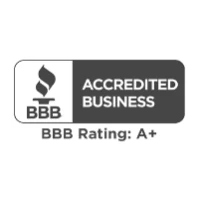At Elite Roofing & Remodel, we understand that choosing the right roofing and home improvement services can come with many questions. To help you make an informed decision, we’ve compiled answers to some of the most frequently asked questions to provide the clarity you need for a smooth and confident experience.
What types of roofing materials do you offer?
We provide a range of roofing materials including asphalt composite, cedar shake, metal, slate, tile, PVC, and TPO. Each option is selected for its durability and aesthetic appeal.
How do you ensure the quality of your work?
We ensure quality by using top-grade materials and employing skilled professionals for every project. Our rigorous process includes expert assessments, precise installations, and thorough inspections.
What is the typical timeline for completing a roofing project?
The timeline for a roofing project can vary based on the size and complexity of the job. Generally, we complete most projects within a few days to a couple of weeks, depending on the specifics.
Do you offer warranties on your work?
Yes, we offer warranties on both materials and workmanship to provide you with peace of mind and ensure the longevity of your roofing investment.
How do I get started with Elite Roofing?
To get started, simply contact us for an initial consultation. We will discuss your needs, provide a detailed estimate, and guide you through every step of the process to ensure a smooth and successful project.
What’s the best roofing material for my commercial building?
It depends on your building’s needs, budget, and climate. TPO and PVC are great for energy efficiency and flat roofs. EPDM is cost-effective and durable. Standing seam metal offers long-term performance with minimal maintenance. Each system has trade-offs in lifespan, cost, and maintenance—so it's smart to weigh those factors with your contractor.
How long does a commercial roof last?
Lifespans vary by material and installation quality. TPO and PVC typically last 20–25 years, EPDM can go 30+ years, BUR and modified bitumen last 15–30 years, and metal roofs can exceed 40–70 years. Regular maintenance plays a big role in reaching (or exceeding) those lifespans.
How much maintenance do commercial roofs need?
Most systems need at least annual inspections to check for damage, drainage issues, or membrane wear. Low-maintenance systems like EPDM or metal need fewer repairs over time, while options like spray foam or BUR may need more frequent attention. Regular upkeep prevents leaks and extends your roof’s life.
What's the best type of roofing underlayment?
The best type of roofing underlayment depends on your roof’s needs. Rubberized asphalt offers the best waterproofing for leak-prone areas. Synthetic underlayment is lightweight, tear-resistant, and ideal for most modern roofs. Asphalt-saturated felt is more affordable but less durable and better suited for mild climates.
Why does roof ventilation matter for performance and building health?
Ventilation prevents heat and moisture buildup in the attic or roof space. Without proper airflow, your roof is more likely to suffer from mold, rot, and reduced lifespan. It also helps regulate indoor temperatures and reduce energy costs.
How many roof vents are needed—and can there be too many?
Most codes recommend 1 square foot of vent area per 150 to 300 square feet of attic space, depending on insulation and vapor barriers. You can have multiple vents, but what matters most is balance—equal intake and exhaust for steady airflow and proper function.
Our Process
What you need in a new roof depends on whether you are fixing up your make it ready for sale, keeping your home until the the children have grown up and moved on, or if you are preparing your home for retirement. Even though your re-roof reasons might vary, your needs in a roofer do not. We have been operating as one of the area’s top roofing companies for over 25 years.









